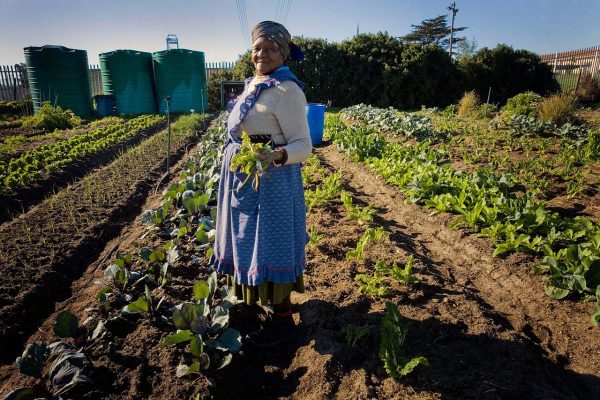
Monsanto and other biotech chemical giants just OUTLAWED seed exchanges in Africa … Seed colonization is nearly complete
Sunday, June 11, 2017 by Tracey Watson
http://www.populationcontrol.news/2017-06-11-monsanto-and-other-biotech-chemical-giants-just-outlawed-seed-exchanges-in-africa-seed-colonization-is-nearly-complete.html

Monsanto has become infamous for covering up the connection between glyphosate – which constitutes 50 percent of its Roundup weed killer product – and cancer, particularly non-Hodgkin’s lymphoma. When the World Health Organization’s International Agency for Research on Cancer (IARC) determined in 2015 that glyphosate was “probably carcinogenic to humans,” there was an immediate backlash against the company and multiple lawsuits have ensued. Unfortunately, distributing cancer-causing herbicides all over the world is far from this agricultural giant’s only sin. Monsanto and fellow Big Agri villains like Syngenta have quietly been destroying global crop diversity, placing themselves in a position where they are poised to control the entire planet’s food supply.
While the colonization of Africa is supposed to be nothing more than an unfortunate chapter in the history of the continent, the reality is that it has just taken on a different guise. The international aid programs upon which the continent has become reliant are forcing many African countries to become totally dependent on patented seeds supplied by Monsanto, Syngenta and others. In terms of these agreements, the people in these countries may no longer engage in the traditional seed exchanges which have been a part of their cultures for generations.
In Tanzania, for example, new laws have been passed which could mean that anybody selling or even giving patented seeds to friends or neighbors could be subject to fines of up to €205,300 – more than most African people can earn in a lifetime. A simple seed exchange could even land someone in jail for up to 12 years, all to protect the intellectual property rights of agri giants thousands of miles away.
“If you buy seeds from Syngenta or Monsanto under the new legislation, they will retain the intellectual property rights,” explains Michael Farrelly of TOAM, a movement advocating for organic farming in Africa. “If you save seeds from your first harvest, you can use them only on your own piece of land for non-commercial purposes. You’re not allowed to share them with your neighbors or with your sister-in-law in a different village, and you cannot sell them for sure. But that’s the entire foundation of the seed system in Africa.” [Related: For more stories like this visit Twisted.news.]
Though it would seem like African leaders are selling their own people down the river, they really don’t have much choice but to pass legislation like this. Such laws are required in terms of a group of G8 agreements which promise aid only if these companies’ intellectual property rights are jealously guarded.
“As a result, the farmers’ seed system will collapse, because they can’t sell their own seeds,” warns Janet Maro of Sustainable Agriculture Tanzania (SAT). “Multinationals will provide our country with seeds and all the farmers will have to buy them from them. That means that we will lose biodiversity, because it is impossible for them to investigate and patent all the seeds we need. We’re going to end up with fewer types of seeds.”
Tanzania became the beneficiary of one of these G8 blackmail schemes in 2012, when it began receiving assistance under the New Alliance for Food Security and Nutrition (NAFSN) program. This initiative, which is backed by the E.U., U.K., U.S., World Bank and, of course, Bill & Melinda Gates Foundation, promised to lift 50 million people out of poverty in 10 different African countries by means of a public-private partnership.
While schemes like these appear brilliant on the surface, the reality is that they give a handful of globalist corporations control of an entire continent by making it wholly dependent on aid, and by moving its people further and further away from their traditional subsistence lifestyles.
Of course, the Tanzanian government insists the new law is there to protect the local farmers so that they can patent their own seeds. As if a nation of people living in poverty without money or access to legal resources would even think of doing that.
Sources for this article include:
IARC.fr[PDF]
Tagged Under: Tags: Africa, colonization, humanitarian aid, Monsanto, seed colonization, Syngenta





